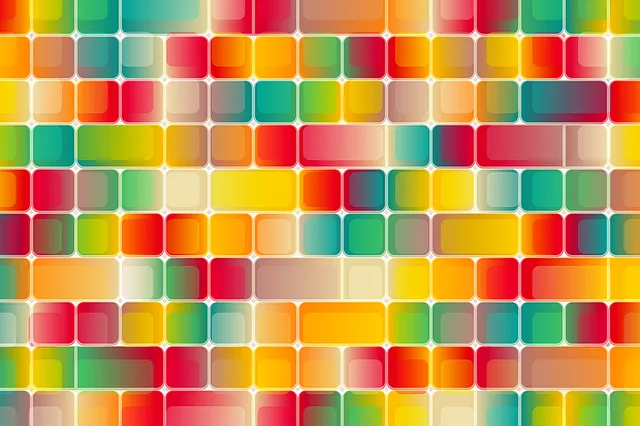Kava tea, an ancient Pacific Island remedy, gains global recognition for its natural anxiety-relieving properties, as highlighted in red Bali kratom reviews and studies. Key compounds called kavalactones interact with brain receptors to promote calmness without drowsiness or addiction, making it a non-stimulating alternative to prescription anxiolytics and herbal remedies like Red Bali Kratom. Ideal for evening consumption, kava tea can help manage anxiety, ease bedtime worries, and improve sleep quality.
“Unwind and find solace with Kava Tea—a centuries-old herbal remedy gaining modern recognition for its natural anxiety relief properties. This ancient ritual, rooted in Pacific Island cultures, is now a popular alternative to mainstream anxiolytics.
In this comprehensive guide, we explore the science behind Kava’s soothing effects, compare it to similar herbs like Red Bali Kratom (based on user reviews), and provide insights into incorporating this herbal delight into your daily routine for improved mental well-being.”
- Understanding Kava Tea: Origins and History
- The Science Behind Kava's Relaxant Properties
- Kava Tea vs. Red Bali Kratom: A Comparison
- Incorporating Kava Tea into Your Routine for Anxiety Relief
Understanding Kava Tea: Origins and History
Kava tea, derived from the roots of the Piper methysticum plant, has a rich history dating back centuries in the Pacific Islands. Often referred to as the “kava-kava” or “kaa,” this herbal drink has been an integral part of cultural and social gatherings in traditional communities across Fiji, Samoa, and other South Pacific nations. The word ‘kava’ itself is believed to have originated from the Tahitian language, signifying a ritual that brings people together.
This ancient herb has gained global recognition for its potential relaxation and anxiety-relieving properties, making it a popular alternative to modern anxiolytics. Similar to red Bali kratom reviews, which highlight its therapeutic effects, kava tea is renowned for its calming impact on the mind and body. Its unique composition of flavonoids and other bioactive compounds contributes to its ability to promote relaxation without inducing drowsiness, making it a sought-after herbal remedy for those seeking natural anxiety management.
The Science Behind Kava's Relaxant Properties
Kava tea, derived from the root of the Piper methysticum plant, has been a traditional remedy for stress and anxiety in many Pacific Island cultures for centuries. Its relaxing effects are attributed to several key compounds, including kavalactones. These unique chemical compounds have gained significant attention in modern herbal medicine, often compared to red Bali kratom reviews for their soothing benefits. Research suggests that kavalactones interact with specific receptors in the brain, influencing neurotransmitters associated with relaxation and calmness, such as GABA (gamma-aminobutyric acid).
This interaction may help explain why kava is renowned for reducing anxiety and promoting a sense of well-being. Scientific studies have backed up these claims, demonstrating that kava extract can effectively alleviate symptoms of anxiety disorders. Moreover, its non-addictive nature makes it an appealing alternative to prescription anxiolytics, providing a natural approach to managing stress and fostering relaxation without the potential side effects or dependency concerns often associated with pharmaceutical interventions.
Kava Tea vs. Red Bali Kratom: A Comparison
Kava tea and Red Bali Kratom are both popular herbal remedies known for their relaxing and anxiety-relieving properties, but they differ in key ways. Kava tea, derived from the root of the Kava plant, has been a staple in Pacific Island cultures for centuries and is renowned for its calming effects without causing drowsiness or addiction. It’s often sought after as an alternative to prescription anti-anxiety medications.
In contrast, Red Bali Kratom is a specific strain of Mitragyna speciosa (Kratom) plants, known for its potent effects on the central nervous system. While it also offers relaxation and anxiety relief, Red Bali Kratom has higher levels of 7-Hydroxymitragynine (7-HMG), a primary active compound in Kratom, which can lead to more intense effects, including increased energy and focus. However, it’s important to note that while both have positive reviews for promoting relaxation, Red Bali Kratom may not be suitable for everyone due to its stronger impact, and users should always consult with professionals before trying new herbal remedies.
Incorporating Kava Tea into Your Routine for Anxiety Relief
Incorporating Kava Tea into your daily routine can be a game-changer for managing anxiety and promoting relaxation, especially when compared to other herbal remedies like red bali kratom. This ancient beverage has been used for centuries in Pacific Island cultures for its calming effects, and modern research backs up these traditional practices. Kava tea is derived from the root of the kava plant (Piper methysticum), which contains compounds that interact with certain brain receptors to induce a sense of tranquility without causing drowsiness.
To harness the benefits, simply steep kava tea leaves in hot water for a few minutes and enjoy it as a warm beverage. Many find that drinking kava tea before bed helps ease worries and facilitates better sleep. Moreover, its natural absence of caffeine makes it suitable for those looking to avoid stimulant-based anxiety relief methods. Unlike some herbal supplements, kava tea has minimal side effects, making it a safe and effective choice for individuals seeking alternative ways to manage anxiety in their daily lives.
Kava tea, with its rich history and scientific backing, offers a natural alternative for those seeking relaxation and anxiety relief. While comparisons like Kava Tea vs. Red Bali Kratom highlight differences in origin and effects, Kava’s unique properties make it a compelling choice. By incorporating this herbal drink into your routine, you can navigate life’s stresses with a calmer mindset. Remember, understanding both the science and traditional uses of Kava tea is key to harnessing its full potential for promoting relaxation and managing anxiety symptoms.






